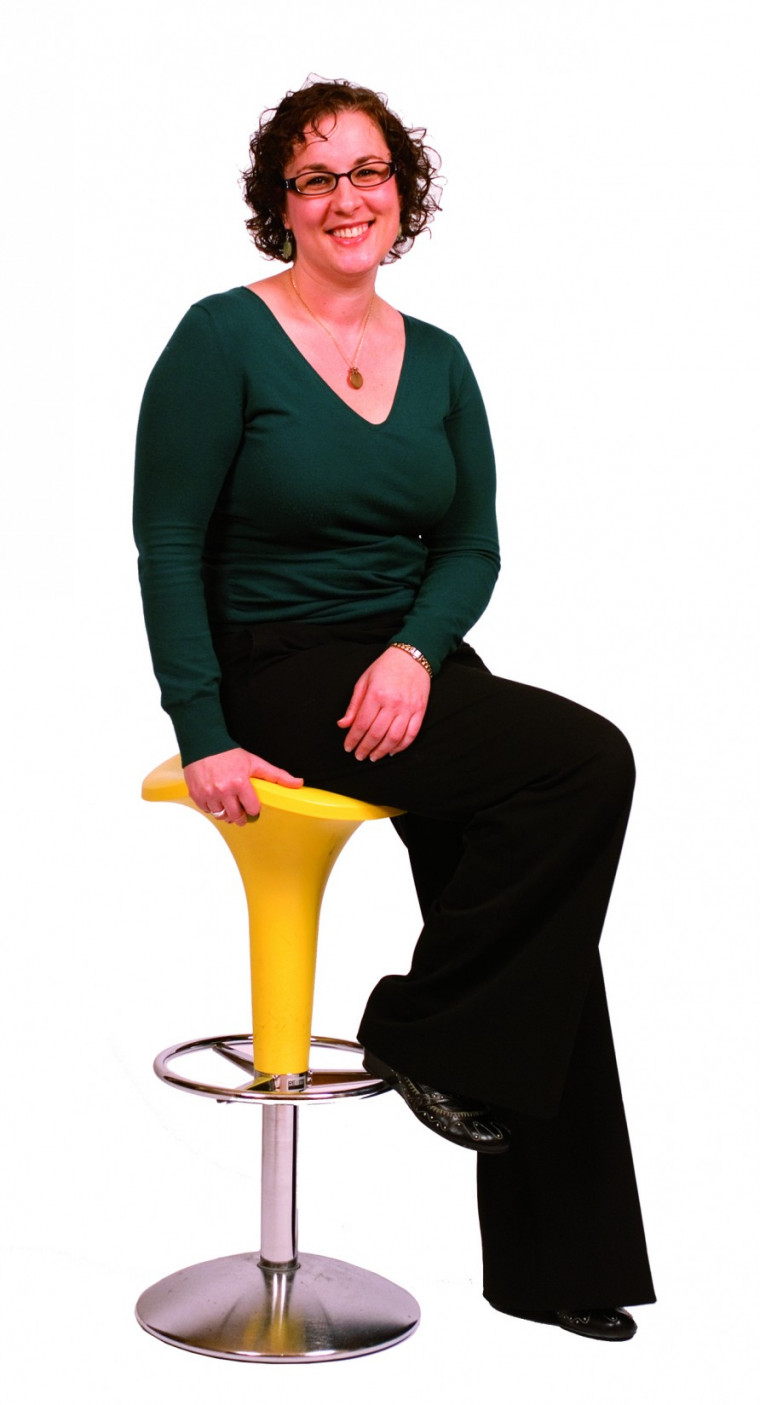Meet the New Head of Center for Career and Community Engagement
Open gallery

Minda Heyman is the new director of the Center for Career and Community Engagement in the College of Arts and Sciences. Her previous experience includes posts in career development at Johns Hopkins University, Goucher College, and Indiana University. She received her M.S. in student affairs administration from Indiana University and her BA in journalism/public relations from the University of Maryland. She joined Lewis & Clark in October 2007.
What was your first job?
Hmm … let me think about that. Well, the first job I remember was at a place called Jack’s Corn, an outdoor produce stand, right by my parents’ house in Baltimore, Maryland. It was a lot of fun–but a lot of hard work too. I did it for two or three summers.
Once you got to college, did you know what you wanted to do?
Actually, I changed my major three times! I started out in fashion merchandising, then moved to English, and ended up in journalism and PR. I loved journalism. Even though it didn’t turn out to be my long-term direction, it gave me a great foundation and skill set that I still use today.
How did you end up in higher education?
When I reflected on the experiences that had made the most impact on me, I found it was those involving administrators and faculty at my undergraduate institution. They helped me see that my world was even bigger than I thought it could be.
So I met with a few of my mentors and supervisors at the University of Maryland, and I sat down with my former boss at the orientation office and asked, “How do I get to do what you do? And she said, “You need to get a degree in higher education.” So that’s what I did.
Your office has a new name: Center for Career and Community Engagement. What’s that about?
By bringing several functions under one umbrella–career planning, community service, student leadership, and academic civic engagement–we’re looking at our students, and their experiences, in a more holistic way.
How would you describe a typical appointment with a student?
It really runs the gamut. On the same day, I could see a first-year student who is trying to figure out what he or she wants to do, a sophomore or junior who’s thinking about getting an internship for the summer, and a senior who’s applying for jobs or graduate school. We don’t have a onesize-fits-all approach. Our students are unique, and their experiences and interests are unique.
What’s a common career misconception you hear from students?
Students can get caught up in the idea that what they choose tomorrow is what they’re going to do forever. I like to tell them it’s really about a path and stepping-stones. Every experience builds on another.
How would you describe the current job market for new grads?
There’s a lot of opportunity out there, but the way you search for that opportunity has changed quite a bit. I think the challenge for students is to focus on what they want to do and get the experience they need now so they can get their foot in the door with an employer later.
How is the job search different? What trends are you seeing?
I think we need to move students from the mind-set of an application process to a communication process. Students can apply for positions, and they absolutely should, but they should also make connections and get involved and invested in their field, industry, or profession.
How is a liberal arts degree relevant in today’s economy?
We’re in a global economy, so being able to multitask, synthesize a lot of information, and engage in creative problem-solving is key. The ability to look at a problem or situation through various lenses is exactly what a liberal arts education teaches students. In the end, it’s not about the relevance of a liberal arts education; it’s about the confidence and comfort in translating and articulating its value.
What do you say to parents who worry about a child trying to find that first job?
They’ll find it! (Laughs.)I think it’s important for parents to help their students seek out valuable experiences early on and reflect on the ones they’ve had. The key is to support students without pressuring them to be perfect.
What’s the best career advice you’ve ever received?
When I was younger and would say, “I can’t,” my father would reply, “You may not want to and you may not be good at it, but that doesn’t mean you can’t.” It’s not really career advice–it’s more like life advice. I’ve found we impose many of our own limitations, and there’s no need for that. The element of choice is really powerful.
More L&C Magazine Stories
Lewis & Clark Magazine is located in McAfee on the Undergraduate Campus.
MSC: 19
email magazine@lclark.edu
voice 503-768-7970
fax 503-768-7969
The L&C Magazine staff welcomes letters and emails from readers about topics covered in the magazine. Correspondence must include your name and location and may be edited.
Lewis & Clark Magazine
Lewis & Clark
615 S. Palatine Hill Road MSC 19
Portland OR 97219

